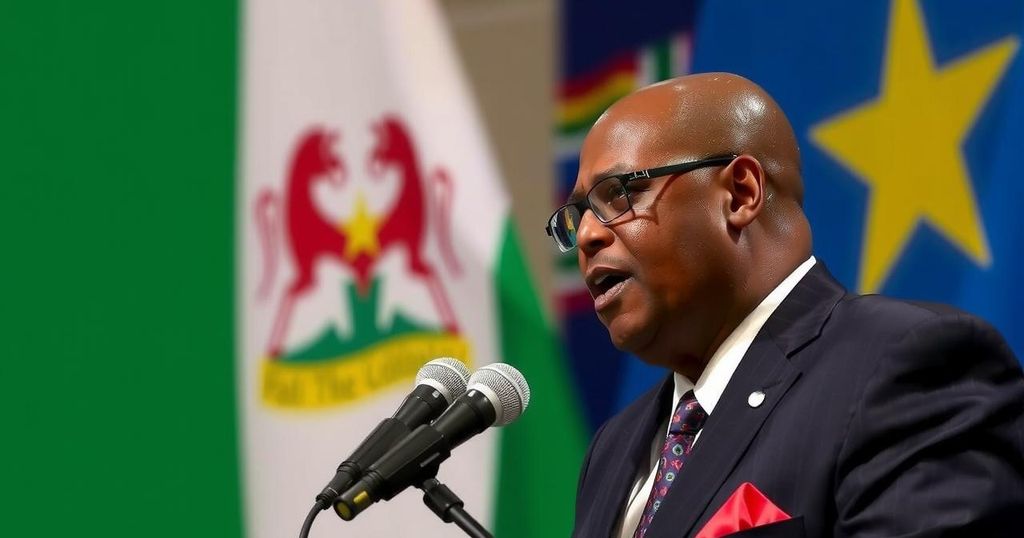Guinea Bissau President Indefinitely Postpones Legislative Elections

Guinea Bissau’s President Umaro Sissoco Embalo has indefinitely postponed legislative elections set for November 24, extending the nation’s political uncertainty due to logistical issues and financial constraints. The postponement follows a warning from government officials about the elections’ viability and reinforces existing tensions between Embalo and the opposition-led parliament. The ongoing instability hinders Guinea Bissau’s progress toward effective governance amid its historical struggles with corruption and coups.
On Monday, President Umaro Sissoco Embalo of Guinea Bissau announced the indefinite postponement of the legislative elections originally scheduled for November 24. This decision extends the political uncertainty of the West African nation, which had already experienced significant turmoil. President Embalo had previously dissolved parliament following violent clashes perceived as a coup attempt late last year. Despite setting a date for the elections, logistical challenges and financial constraints led to doubts about their feasibility. The warning about the elections’ viability came from Aristides Ocante da Silva, the minister for territorial administration, who cited insufficient funding and organizational difficulties. Following increased speculation regarding the elections’ postponement, President Embalo officially announced their deferral and canceled the decree that established the vote date. A new timeline has yet to be determined, and future guidance will be communicated through a forthcoming decree. The postponement further complicates already fraught relations between President Embalo and the African Party for the Independence of Guinea and Cape Verde (PAIGC), which recently gained a majority in parliament. This ongoing tension marks a significant challenge for Embalo’s administration and the country’s quest for political stability. Despite historical efforts towards establishing consistent democratic governance, Guinea Bissau’s struggles with poverty and corruption have hampered progress, exacerbating fears surrounding the stability of its political landscape. Guinea Bissau’s political saga has been tumultuous since its independence from Portugal, with numerous coups contributing to a fragile governance structure. While the nation has aimed to move toward a functional constitutional order over the past decade, continuous disputes over leadership and electoral processes raise serious concerns for its citizens and their aspirations for democracy.
Guinea Bissau, a small Portuguese-speaking West African nation, has experienced chronic political instability since gaining independence in 1973. The country has been plagued by multiple coup d’états, corruption, and economic challenges, making it one of the poorest countries globally. The ongoing political turbulence was particularly highlighted by the recent dissolution of parliament by President Umaro Sissoco Embalo after violent clashes in December 2023 were deemed an attempted coup. Such instability raises concerns about the nation’s ability to hold fair and timely elections and governs its political trajectory post-electoral processes.
The indefinite postponement of legislative elections in Guinea Bissau underscores the nation’s persistent political turmoil. President Embalo’s decision reflects logistical and financial challenges that plague the electoral process, complicating the already tense relationship with opposition factions. As the country navigates these difficulties, the prospect of establishing a stable democratic system remains uncertain, with the need for a clear timeline and resolution pivotal for Guinea Bissau’s future governance.
Original Source: punchng.com







